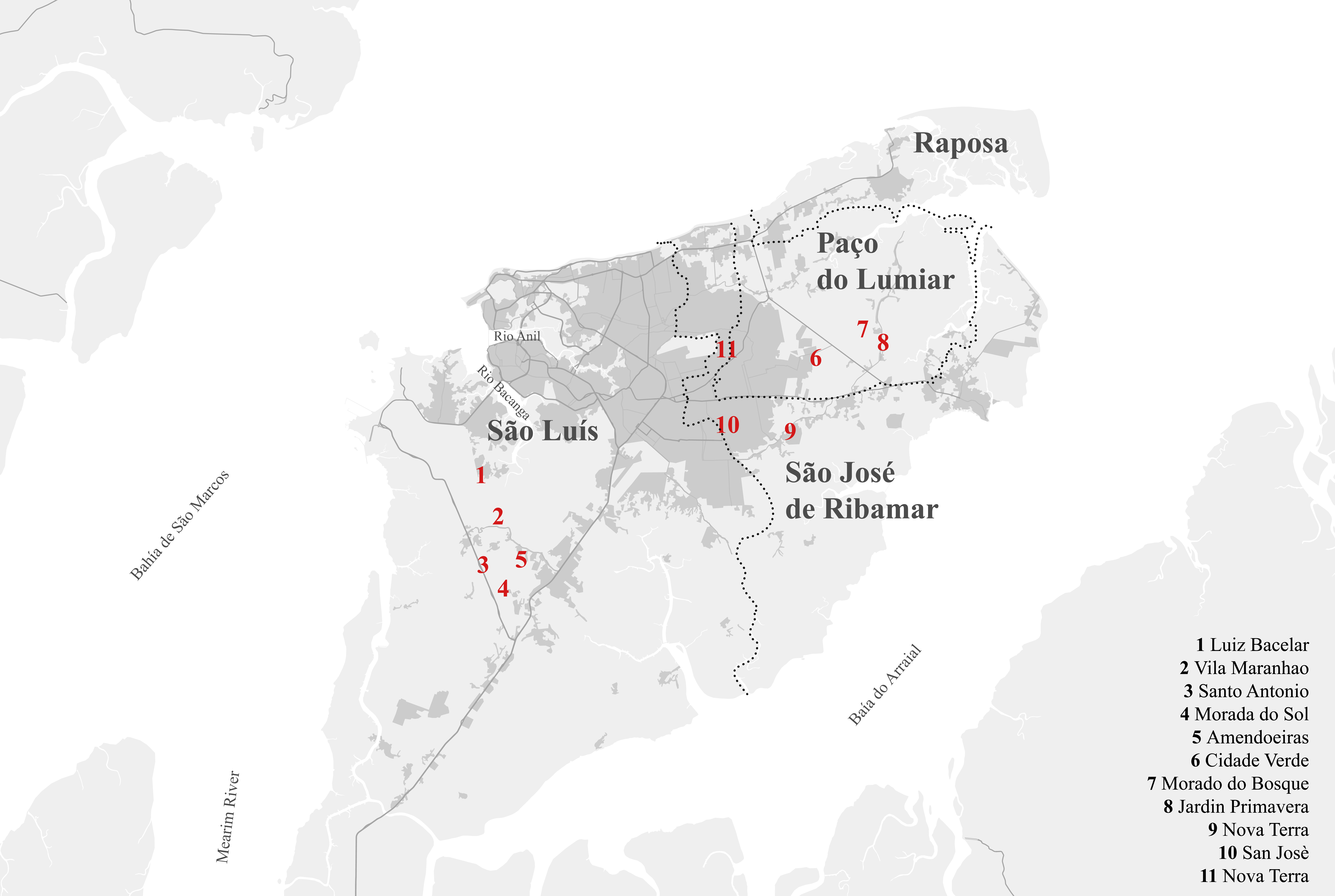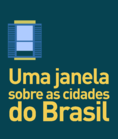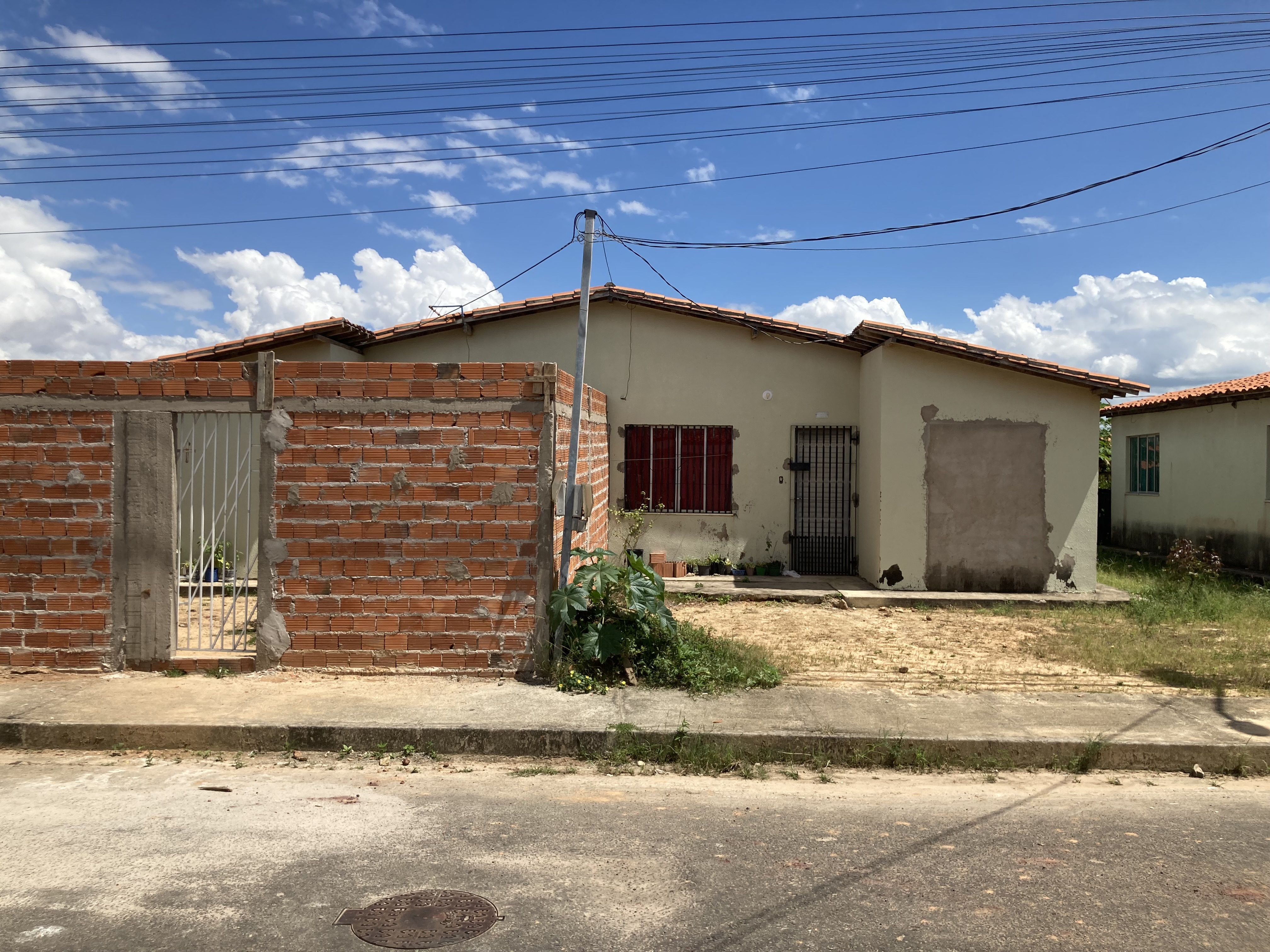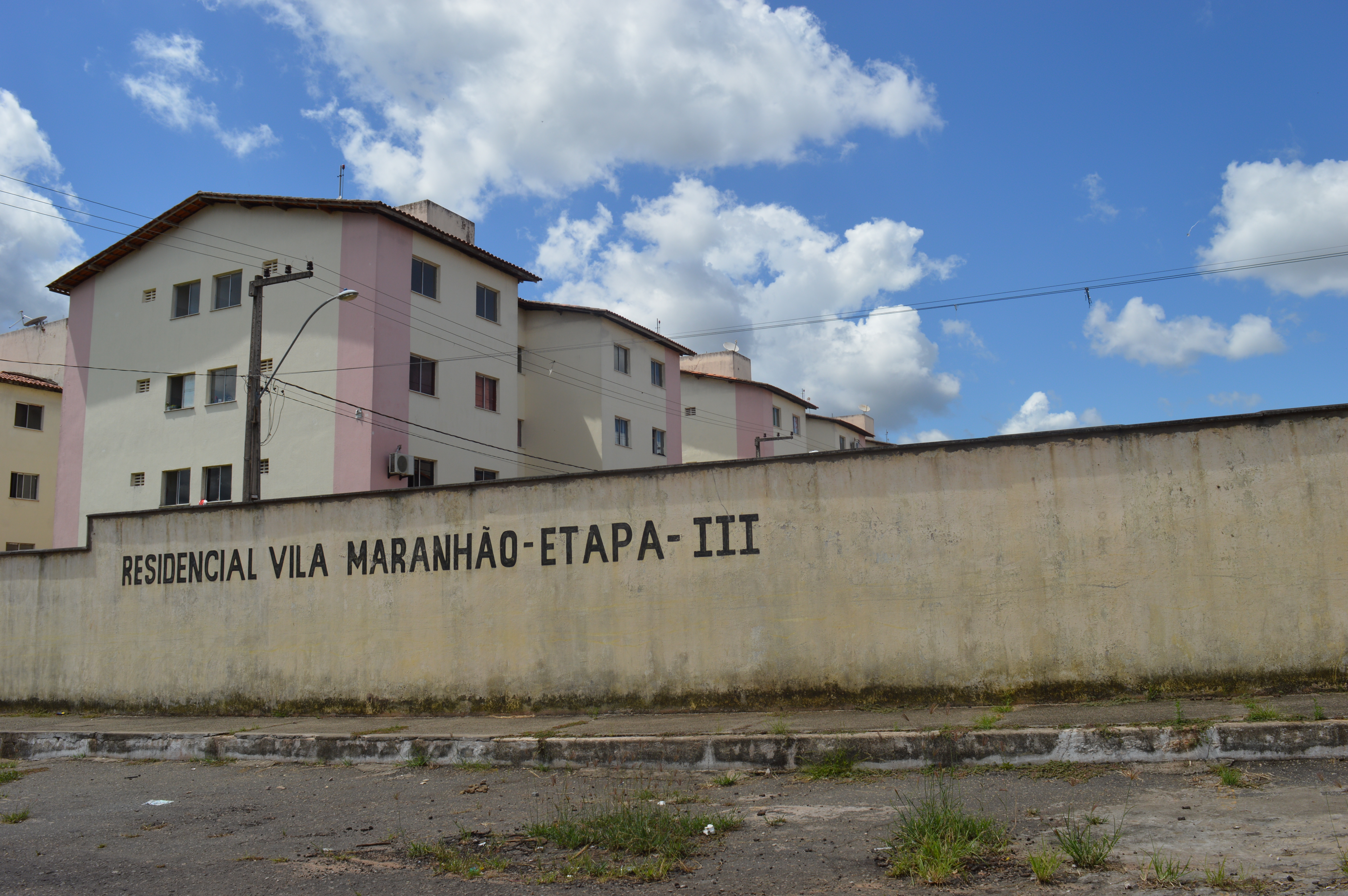conservation & preservation spatial planning waterfronts & harbors identity città storica large scale plans & projects housing globalization participation composition design commerce public policies technology European policies surveys & analyses premio gubbio 2018 cities economics Communication progetto urbano urban form governance energy ifau2018
Housing decentralisation in a Brazilian tropical metropolis: the development of the My House My Life program in the metropolitan region of São Luís
Marco Mareggi (edited by)
![]() Portuguese Version
Portuguese Version![]() Italian Version
Italian Version
In 2023 in Brazil, the housing policies directed by the federal administration and the related program once again returned to the center of the government agenda with the election of Luiz Inácio Lula da Silva to the presidency in 2022. This is the My Home My Life program (Programa Minha Casa Minha Vida, PMCMV), started in 2009 by the same government team led by the Workers' Party. In 2023, when the new government took office, the program was relaunched as a flagship intervention for the first 100 days of the legislature.
The Program is «the main action of the Brazilian Government regarding the right to housing, developed with a decisive role of the business world» (Rolnik et al. 2015: 392). It is considered the largest affordable housing project in the country's history. In eleven years (2009-2020) the program has contracted 7.525.077 housing units in the country and 5.399.700 were successfully delivered (Souza 2023). With a perhaps oversized estimate, online media reports that already in 2018 «more than 9.6 million families with a medium-low income reside in the condominiums of the program, spanning rural and urban areas» (Pachero 2018).
Given the relevance of public intervention concerning the housing problem, it is considered useful to offer to the Italian and international debate, on the one hand, a framework of the recent Brazilian experience, discussed in the articles by Marco Mareggi and Clara Raissa Pereira de Souza. On the other hand, a specific insight into the developments of the My House My Life program on the Ilha do Maranhão is proposed, through the articles of Emanuele Bani who frames the policies for social housing in the context of the tropical metropolitan area of São Luís and of Marco Mareggi, about the types of spaces of the residential settlements found on the island. The interest in the case study addressed is given by the consistency of the interventions in the metropolitan area and by the scarce presence of the case itself in the urban planning and architectural literature, mainly reported by bachelor's and master's theses and doctoral dissertations in Portuguese.
While the reflections on the general framework are the outcome of a reconstruction through the literature and the collection and processing of statistical data on the MCMV program at a federal scale and for the island of São Luís, the study of the implementation of the program in the specific metropolitan context was the result of a collective work carried out by scholars from the State University of Maranhão (UEMA), Brazil, and the Politecnico di Milano, Italy. They shared field research exploring the settlements in São Luís, the capital city of the state of Maranhão, in São José de Ribamar and in Paço do Lumiar. These urban areas without solutions of continuity constitute the metropolitan conurbation. The shared inspection was carried out in July 2022 and involved 11 residential complexes built as part of the program on Ilha do Maranhão. A photographic campaign, interviews with local actors and inhabitants and visits to some homes and artisan activities made it allowed to make direct contact and measure through direct experience the urban condition implemented by the PMCMV.
CONTENTS
• Programs and contradictions of federal housing policies in Brazil. An introduction
Marco Mareggi
• Housing policies in Brazil: a brief analysis of the My House My Life Program
Clara Raissa Pereira de Souza
• The support for social housing in São Luís
Emanuele Bani
• Types of spaces in the residential settlements of the My House My Life Program in the Island of Maranhão
Marco Mareggi
Marco Mareggi, architect and urban planner, is associate professor of urbanism, Department of Architecture and Urban Studies, Politecnico di Milano. He is editor of the column A window on Brazilian cities, published bu Planum. The Journal of Urbanism (www.planum.net).
Clara Raissa Pereira de Souza, Architect and urban planner (State University of Maranhão, UEMA), master in Socio-spatial and regional development (UEMA), doctoral student in Public Policies. She was an architect and urban planner at the State Secretariat for Cities and Urban Development (SECID) and head of the Urban and Regional Studies department at the Institute of Socioeconomic and Cartographic Studies of Maranhão (IMESC). She is currently a free researcher at the Laboratory of Territorial Analysis and Socioeconomic Studies (LATESE) and a member of the Maranhão Urban and Rural Habitat Research Network. Her research interest include the following topics: social housing, rural housing, self-construction processes and public policies for urban and regional development.
Emanuele Bani, Doctor of Public Policy from the Federal University of Maranhão (UFMA), Master's Degree in Health and Environment from the Federal University of Maranhão (UFMA) and Master's Degree in Socio-Spatial and Regional Development from the State University of Maranhão (UEMA), has a validated degree in Geography from the Federal University of Maranhão (2014) and a degree in Human Sciences of the Environment, Territory and Landscape from the University of Milan (2007). He is currently a free researcher at the Laboratory of Territorial Analysis and Socioeconomic Studies (LATESE), linked to the Architecture and Urban Planning Course of the State University of Maranhão (UEMA) and a member of the urban and rural Habitat research network of Maranhão.
A WINDOW ON BRAZILIAN CITIES
Regular column of Planum. The Journal of Urbanism | www.planum.net
CREDITS
• Marco Mareggi | Editor of the column
• Luca Lazzarini | English text reviewer
• Talita Amaral Medina | Portuguese text reviewer
• Cecilia Saibene | Layout
To send proposals of articles and contributions to the regular column, write to:
Marco Mareggi: marco.mareggi@polimi.it
Planum Editorial Staff: planum.magazine@gmail.com
Related articles:




Planum
The Journal of Urbanism
ISSN 1723-0993
owned by
Istituto Nazionale di Urbanistica
published by
Planum Association
ISSN 1723-0993 | Registered at Court of Rome 4/12/2001, num. 514/2001
Web site realized by ChannelWeb & Planum Association | Powered by BEdita 3





